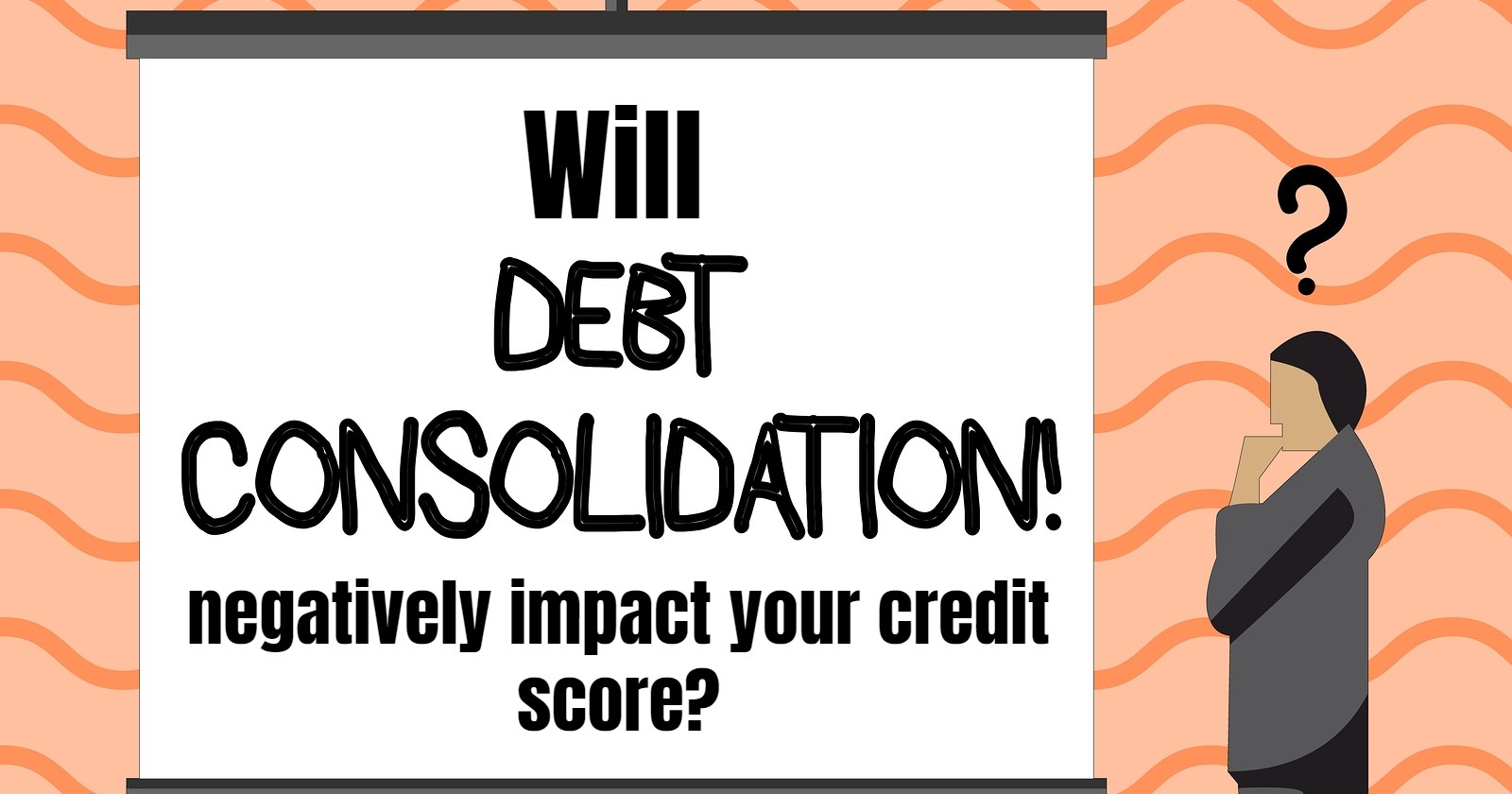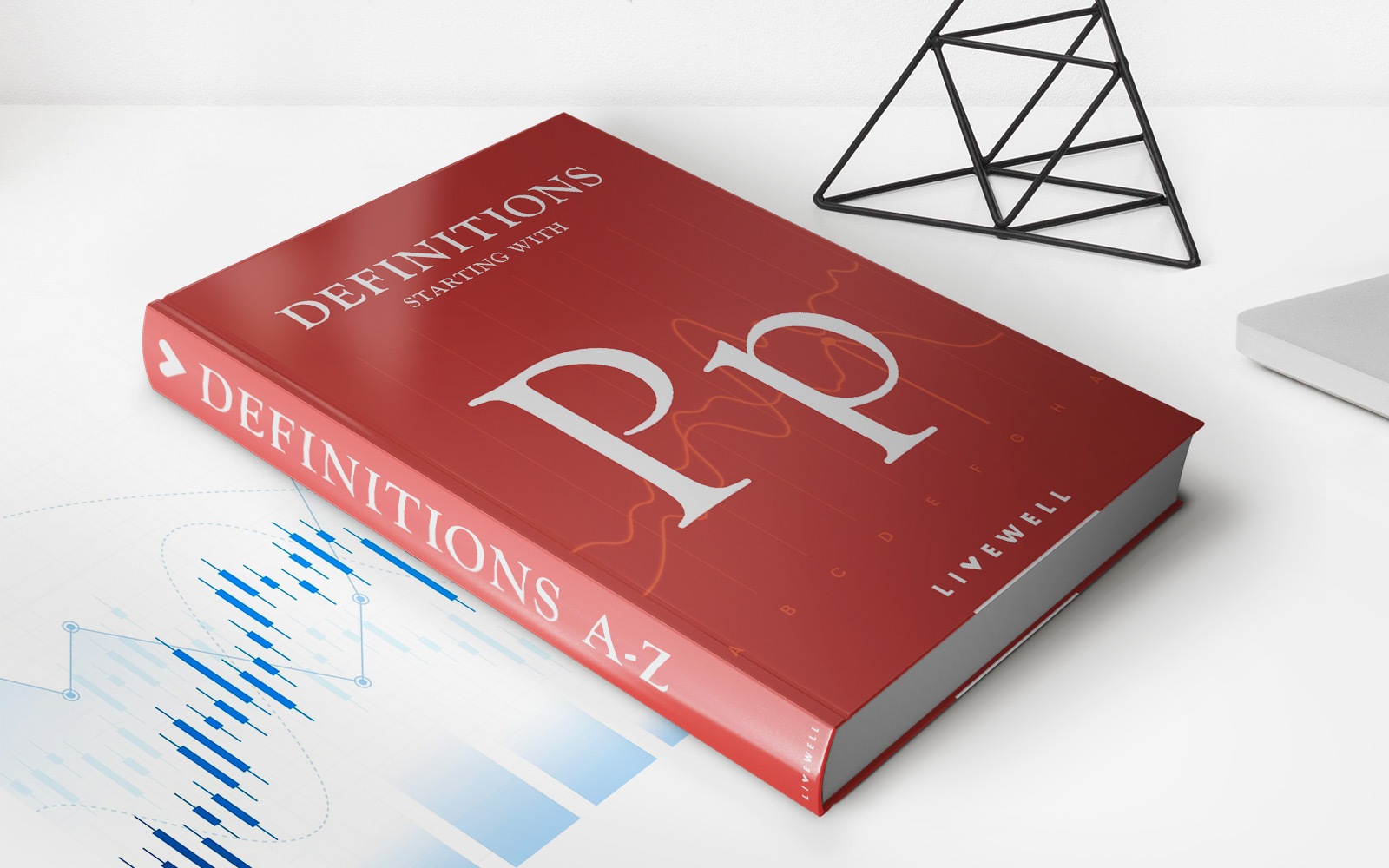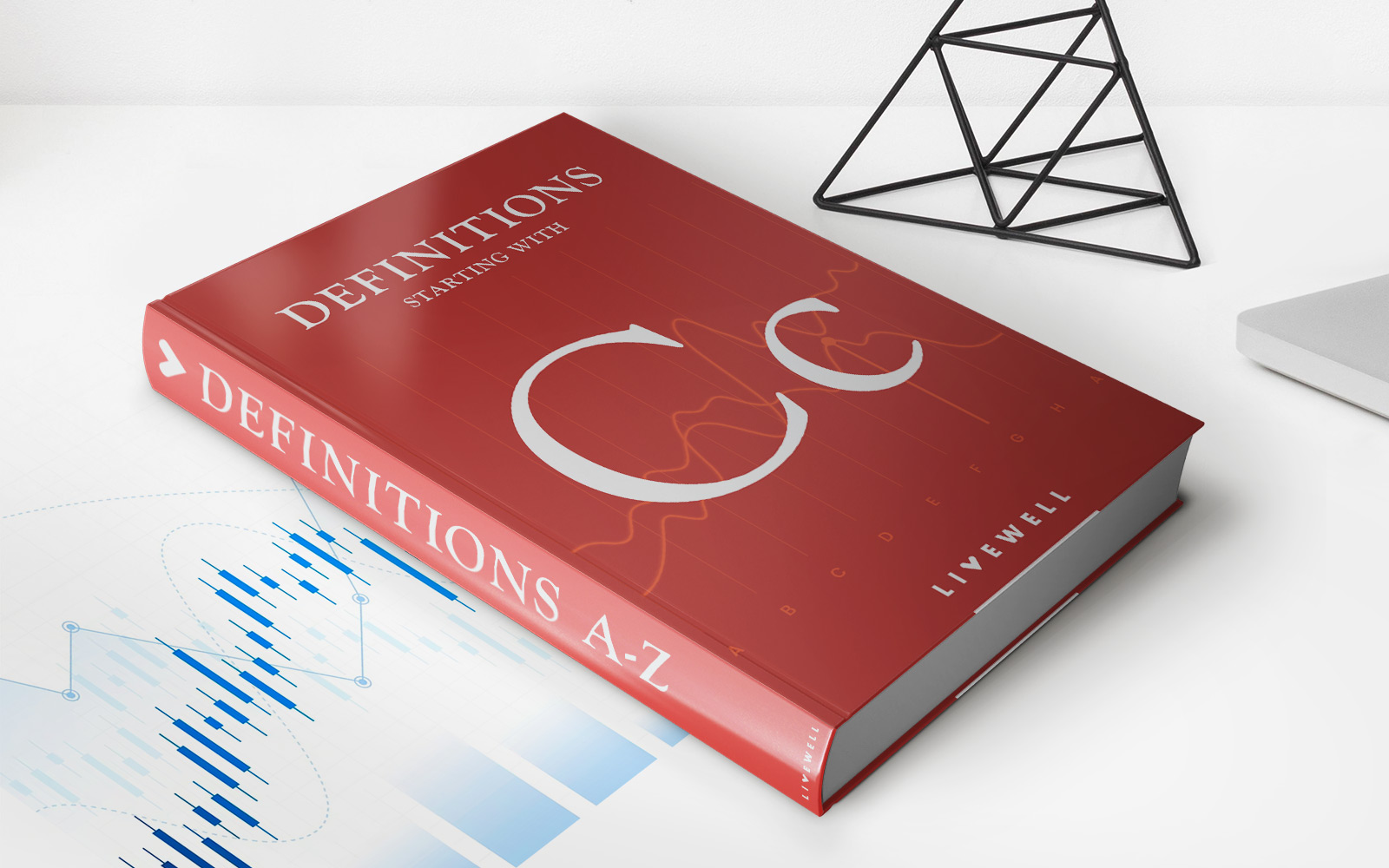Home>Finance>How Much Does National Debt Relief Affect Your Credit


Finance
How Much Does National Debt Relief Affect Your Credit
Published: January 4, 2024
Learn how National Debt Relief affects your credit and find out the impact of finance on your credit score. Discover the relationship between debt relief and your financial standing.
(Many of the links in this article redirect to a specific reviewed product. Your purchase of these products through affiliate links helps to generate commission for LiveWell, at no extra cost. Learn more)
Table of Contents
- Introduction
- What is National Debt Relief?
- How Does National Debt Relief Work?
- Does National Debt Relief Affect Your Credit?
- Factors that Impact Credit Score during National Debt Relief
- Positive Effects of National Debt Relief on Your Credit
- Negative Effects of National Debt Relief on Your Credit
- How to Minimize the Negative Impact on Your Credit
- Conclusion
Introduction
Dealing with debt can be a stressful and overwhelming experience, especially when it begins to impact your credit. One possible solution for individuals struggling with debt is national debt relief. National debt relief programs aim to provide a path to financial freedom by negotiating with creditors to reduce the amount owed.
In this article, we will explore the concept of national debt relief and its impact on your credit. We will delve into the inner workings of national debt relief programs, discuss how they can affect your credit score, and provide tips on how to minimize the negative impact. By understanding the implications of national debt relief on your credit, you will be better equipped to make informed decisions about your financial future.
Before we dive into the details, it’s important to note that seeking professional guidance from a reputable debt relief agency is crucial. Debt relief programs can have varying outcomes depending on your unique financial situation, and professional assistance can help you navigate the process more effectively.
Now, let’s explore the world of national debt relief and understand how it can impact your credit standing.
What is National Debt Relief?
National debt relief is a financial solution designed to assist individuals who are burdened with overwhelming debt. It involves working with a debt relief company or agency to negotiate with creditors on your behalf. The goal is to reduce the total amount of debt owed, make it more manageable, and provide a clear path towards becoming debt-free.
There are various types of national debt relief programs available, including debt settlement, debt consolidation, and debt management plans. Each program has its own approach and unique benefits.
In a debt settlement program, the debt relief company negotiates with your creditors to settle your debts for less than the full amount. This can result in a significant reduction in the total debt owed. However, it’s important to note that debt settlement programs generally require you to stop making payments to your creditors, which may negatively impact your credit score.
Debt consolidation programs, on the other hand, involve combining multiple debts into a single loan. This can make it easier to manage your payments by reducing the number of creditors you owe and potentially lowering the interest rate. Debt consolidation programs typically do not negatively impact your credit score, as you are still making regular payments to your creditors.
Finally, debt management plans involve working with a credit counseling agency to create a repayment plan that suits your financial situation. The agency negotiates with your creditors to lower interest rates and monthly payments, making it easier for you to repay your debts over time. Debt management plans can have a positive impact on your credit, as you are making consistent payments towards your debts.
It’s important to carefully consider your options and choose the national debt relief program that aligns with your financial goals and circumstances. Seeking guidance from a reputable debt relief agency can help you navigate the process and determine the best course of action.
How Does National Debt Relief Work?
National debt relief programs work by providing individuals with a structured approach to managing and reducing their debt. Let’s take a closer look at how these programs typically operate:
- Assessment: When you enroll in a national debt relief program, the first step is typically a comprehensive assessment of your financial situation. This assessment includes gathering information about your debts, income, expenses, and assets. It helps the debt relief company understand your unique circumstances and develop a customized plan for you.
- Budgeting: Once your financial situation has been assessed, the next step is to create a budget. This involves analyzing your income and expenses to determine how much you can afford to pay towards your debts. The debt relief company will work with you to establish a realistic budget that aligns with your financial goals.
- Negotiation: One of the primary functions of a national debt relief program is to negotiate with your creditors on your behalf. This involves reaching out to your creditors and presenting your financial situation to them. The goal is to convince them to reduce the total amount of debt owed, lower interest rates, or create a more manageable repayment plan.
- Payment Plan: Once negotiations are successful, a payment plan is established. This plan outlines the modified terms of your debt repayment. With debt settlement programs, you may be required to make lump-sum payments or monthly payments into a dedicated account managed by the debt relief company. With debt consolidation or management plans, you will typically make regular payments to the debt relief company, which will then distribute the funds to your creditors.
- Monitoring and Support: Throughout the debt relief process, the debt relief company will provide ongoing support and monitoring. They will ensure that payments are being made towards your debts and communicate with your creditors on your behalf. Additionally, they may offer financial education and guidance to help you improve your financial habits and prevent future debt.
It’s important to note that the effectiveness of national debt relief programs can vary depending on individual circumstances. Factors such as the amount of debt, income level, and creditor cooperation can impact the outcome. Working with a reputable debt relief agency can significantly increase the likelihood of a successful debt relief journey.
Does National Debt Relief Affect Your Credit?
One of the primary concerns individuals have when considering national debt relief is how it will impact their credit. While national debt relief can provide a pathway to resolving your debt issues, it’s important to understand that it may have implications for your credit score.
The impact of national debt relief on your credit can vary depending on the specific program you choose and your unique financial situation. Here are some key points to consider:
- Debt Settlement: If you opt for a debt settlement program, it’s important to understand that it can have a negative impact on your credit. This is because debt settlement involves negotiating with creditors to settle your debts for less than the full amount. As a result, you may have to stop making payments to your creditors during the negotiation process, which can lead to delinquency and a lowering of your credit score.
- Debt Consolidation and Management Plans: On the other hand, debt consolidation and debt management plans typically have a neutral or positive impact on your credit. With these programs, you are still making regular payments to your creditors, which reflects positively on your credit history. However, it’s important to note that a debt consolidation loan may initially result in a temporary dip in your credit score due to the application and new credit inquiries.
It’s also essential to understand that while debt relief programs can impact your credit score, the long-term benefits of resolving your debts may outweigh the potential temporary negative effects. Here are a few factors to consider:
- Reduced Debt-to-Income Ratio: By successfully completing a national debt relief program, you can significantly reduce your debt-to-income ratio. This ratio is an important factor in determining your creditworthiness and can positively impact your credit score over time.
- Positive Payment History: Making consistent payments through a debt consolidation or management plan demonstrates responsible financial behavior. This positive payment history can help improve your credit score as creditors see a pattern of on-time payments.
- Elimination of Delinquent Accounts: Through debt settlement or other national debt relief programs, you can resolve delinquent accounts, which can have a positive impact on your credit. Having fewer delinquent accounts can improve your creditworthiness in the eyes of potential lenders.
Ultimately, the impact of national debt relief on your credit score will depend on various factors. It is essential to understand and weigh these factors against the benefits of becoming debt-free. Working with a reputable debt relief agency and seeking professional advice can help you make an informed decision about the best course of action for your financial situation.
Factors that Impact Credit Score during National Debt Relief
When going through national debt relief, there are several factors that can influence your credit score. It’s important to understand these factors to have a clearer picture of how your credit may be affected. Here are some key factors to consider:
- Payment History: Your payment history plays a significant role in determining your credit score. During a national debt relief program, your payment history might be impacted depending on the specific program you choose. Debt settlement programs, where you stop making payments to your creditors, can result in missed or late payments, which can negatively impact your credit score. However, debt consolidation and debt management plans usually involve making regular payments, which can have a positive impact on your payment history.
- Amount of Debt: The amount of debt you have can also affect your credit score. National debt relief programs aim to reduce the total amount of debt you owe, which can, in turn, have a positive impact on your credit. When your debt is reduced through successful negotiation or consolidation, your debt-to-credit ratio improves, and this can enhance your credit score. However, it’s important to note that there may be initially negative impacts on your score as you go through the debt relief process.
- Type of Debt: The type of debt you have can influence the impact on your credit score during national debt relief. For example, credit card debt is typically unsecured, while mortgage or auto loan debt is secured. Secured debts may have different implications for your credit score, as the collateral can protect the lender’s interests. Therefore, the specifics of your debt situation should be considered when evaluating credit score impacts.
- Credit Utilization Ratio: Your credit utilization ratio refers to the percentage of your available credit that you are currently using. National debt relief programs can impact this ratio, especially if you are consolidating your debts into a single loan or plan. By reducing your overall debt, you can lower your credit utilization ratio, which can positively impact your credit score.
- Length of Credit History: The length of your credit history is another factor that can influence your credit score. National debt relief programs generally do not directly impact the length of your credit history. However, if you close credit accounts as part of the process, it may affect the average age of your credit accounts, which can indirectly impact your credit score. It’s generally recommended to keep older, positively managed accounts open to maintain a longer credit history.
It’s important to remember that the impact on your credit score during national debt relief is not solely determined by these factors. Each individual’s financial situation and credit profile are unique, so the impact may vary. Consulting with a reputable debt relief agency can help you understand the specific implications for your credit score and develop strategies to mitigate any negative effects.
Positive Effects of National Debt Relief on Your Credit
National debt relief programs, when managed effectively, can have several positive effects on your credit. While there may be some initial negative impacts, the long-term benefits can help improve your credit standing. Here are some positive effects of national debt relief on your credit:
- Reduced Debt-to-Income Ratio: One significant benefit of national debt relief is the reduction in your overall debt. By successfully completing a debt settlement, consolidation, or management plan, you can significantly decrease your debt-to-income ratio. This ratio measures the amount of debt you owe compared to your income, and a lower ratio demonstrates better financial stability. A lower debt-to-income ratio can positively impact your credit score over time.
- Positive Payment History: National debt relief programs that involve regular payments, such as debt consolidation or management plans, can help establish a positive payment history. Making consistent, on-time payments to creditors through these programs demonstrates responsible financial behavior. Creditors view a history of timely payments favorably, as it indicates your ability to manage your debts responsibly. Such a positive payment history can improve your credit score.
- Elimination of Delinquent Accounts: Through successful debt settlement or consolidation, national debt relief programs can help resolve delinquent accounts. Delinquent accounts are a red flag for lenders and can have a negative impact on your credit score. By eliminating these delinquencies, you can improve your creditworthiness and increase your chances of obtaining credit in the future.
- Improved Credit Utilization Ratio: National debt relief programs can also positively affect your credit utilization ratio. Credit utilization ratio refers to the percentage of your available credit that you are utilizing. By reducing your overall debt through debt settlement or consolidation, your credit utilization ratio decreases. Lenders prefer to see a lower credit utilization ratio, as it indicates responsible credit management and can have a positive impact on your credit score.
- Ability to Rebuild Credit: Once you have successfully completed a national debt relief program, you can begin working on rebuilding your credit. By implementing good financial habits, such as making on-time payments and keeping credit card balances low, you can gradually improve your credit score over time. Rebuilding your credit after debt relief is an opportunity to create a stronger financial foundation and gain access to better credit opportunities in the future.
It’s important to note that the positive effects of national debt relief on your credit will require time and consistent effort. It’s crucial to continue practicing responsible financial habits to maintain and further improve your credit score. Working with a reputable debt relief agency can provide guidance and support as you navigate the process of improving your credit after completing a national debt relief program.
Negative Effects of National Debt Relief on Your Credit
While national debt relief programs can provide a path to financial freedom, it’s important to be aware that there can be negative effects on your credit. Understanding these potential drawbacks can help you make informed decisions and take steps to minimize their impact. Here are some negative effects of national debt relief on your credit:
- Missed Payments and Delinquencies: If you opt for a debt settlement program, you may be required to stop making payments to your creditors during the negotiation process. This can result in missed or late payments, which are reported to credit bureaus and can negatively impact your credit score. These delinquencies can stay on your credit report for up to seven years, affecting your ability to obtain new credit in the future.
- Temporary Decrease in Credit Score: The process of enrolling in a national debt relief program, particularly debt consolidation or management plans, may initially result in a temporary decrease in your credit score. This can happen due to factors such as a new loan application, new credit inquiries, or closing of existing accounts. However, with consistent and responsible use of the new debt relief plan, your credit score can gradually improve over time.
- Negative Remarks on Credit Report: If you participate in a debt settlement program, your creditors may report that your debts were settled for less than the full amount owed. This can be noted on your credit report as a negative remark, indicating that you did not fulfill your original obligations. While debt settlement can reduce your overall debt, it may still be viewed unfavorably by potential lenders in the future.
- Longer Credit Recovery: Unlike some other methods of resolving debts, national debt relief programs can take a longer time to fully recover and rebuild your credit. While making payments through debt management or consolidation plans can improve your credit over time, the negative impact of missed payments or settlements can linger on your credit report for several years.
- Possible Difficulty Obtaining New Credit: Participating in a national debt relief program can make it more challenging to obtain new credit in the short term. Lenders may view your involvement in debt relief as a potential risk, as it indicates previous financial difficulties. It’s important to be patient and focus on rebuilding your credit history over time before seeking new credit opportunities.
While these negative effects are important to consider, it’s crucial to remember that the long-term benefits of resolving and managing your debt can outweigh the short-term impacts. With responsible financial habits and consistent use of your new debt relief plan, you can work towards rebuilding your credit and improving your financial standing over time.
How to Minimize the Negative Impact on Your Credit
While participating in a national debt relief program may have some negative effects on your credit, there are steps you can take to minimize the impact and mitigate any potential damage. Here are some strategies to consider:
- Stay Current on Payments: If you’re enrolled in a debt consolidation or management plan, it’s crucial to make all payments on time. Consistently making payments as scheduled demonstrates responsible financial behavior and can help you maintain a positive payment history.
- Communicate with Creditors: If you’re going through a debt settlement program, it’s important to communicate with your creditors during the negotiation process. Stay in contact with them and keep them informed about your participation in a debt relief program. Maintaining open lines of communication can help minimize the negative impact on your credit.
- Monitor Your Credit Report: Regularly monitoring your credit report is essential to identify any errors or discrepancies. Ensure that the information reported accurately reflects your participation in a debt relief program, and dispute any incorrect or misleading notations. You have the right to an accurate credit report, and keeping it updated is crucial for your financial well-being.
- Manage New Credit Responsibly: If you decide to acquire new credit after completing a national debt relief program, it’s important to manage it responsibly. Make payments on time, avoid excessive debt, and keep credit card balances low. Responsible credit management post-debt relief can help improve your credit score over time.
- Practice Good Financial Habits: Building strong financial habits is crucial to maintaining a healthy credit profile. This includes budgeting, living within your means, and avoiding unnecessary debt. By demonstrating responsible financial behavior, you can rebuild your credit and minimize the impact of any previous negative credit history.
- Seek Professional Guidance: Working with a reputable debt relief agency can provide invaluable guidance throughout the process and help you navigate the potential impact on your credit. They can offer personalized advice and strategies to minimize any negative effects on your credit score. Professional guidance can also involve credit counseling, which can help you better understand and manage your finances moving forward.
While it’s important to minimize the negative impact on your credit, it’s equally important to focus on the long-term goal of becoming debt-free and improving your financial well-being. With patience, perseverance, and responsible financial habits, you can rebuild your credit over time and achieve a healthier financial future.
Conclusion
National debt relief can be a viable solution for individuals struggling with overwhelming debt. While it may have some negative impacts on your credit, the potential benefits of becoming debt-free far outweigh the temporary setbacks. Understanding the factors that can influence your credit during the debt relief process and implementing strategies to minimize the negative impact can help you navigate the journey more effectively.
National debt relief programs, such as debt settlement, consolidation, or management plans, can lead to positive outcomes for your credit score. By reducing your overall debt, establishing a positive payment history, and eliminating delinquent accounts, you can gradually improve your creditworthiness. It’s essential to stay current on payments, communicate with creditors, and monitor your credit report to ensure accuracy and address any discrepancies.
Additionally, practicing good financial habits and seeking professional guidance from reputable debt relief agencies can further support your journey toward financial freedom. By managing new credit responsibly and adhering to responsible financial practices, you can rebuild your credit over time and improve your financial well-being.
It’s important to remember that the impact of national debt relief on your credit may vary based on your unique financial situation. Consulting with professionals and seeking personalized advice is crucial for making informed decisions and navigating the debt relief process effectively.
In conclusion, national debt relief provides a path to financial freedom for individuals overwhelmed by debt. While it may have some temporary negative effects on your credit, the long-term benefits of resolving your debts and implementing responsible financial habits can help you rebuild your credit and achieve a healthier financial future.














